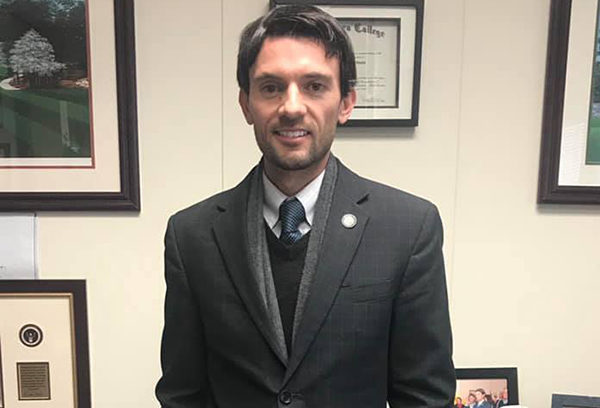A bill presented in the state House by State Rep. Jon Hardister (R-Guilford) to allow businesses closed by Gov. Roy Cooper’s executive orders to delay renewing their alcohol licenses passed by a unanimous vote on Wednesday, July 8.
Hardister, who is the House majority whip, presented the bill in committee and on the House floor. Senate Bill 226 officially titled, “Delay Certain ABC Permit Renewal Payments,” also passed the state Senate by a unanimous vote.
Senate Bill 226 has now been sent to Cooper for his consideration. Cooper has been vetoing many of the bills passed by the legislature that have to do with his executive orders, which effectively shut down the economy of the state. Cooper is now slowly allowing businesses to reopen, but with unanimous votes in the House and Senate, this bill has a pretty good chance of avoiding the veto stamp.
ABC permits can cost thousands of dollars and the idea that a business that the state has ordered closed would still have to pay the state for a permit to sell alcohol, which the state won’t allow it to do, appeared to be placing and unfair burden on these businesses to everyone in the House and Senate who voted. If the bill becomes law, businesses that had to pay for renewal of their permits while closed by the executive orders would have the opportunity to apply for a refund.
Hardister had the bill amended from its original version to incorporate the ABC permit language in the bill and consulted with the state ABC Commission, which supported the legislation.
Hardister said, “This bill provides a lifeline for businesses that are having a difficult time. Delaying these fees and allowing temporary refunds will help small businesses get back on their feet. I was encouraged to see a unanimous vote on this bill.”
Earlier the legislature passed a bill to allow bars to reopen under similar restrictions as those placed on restaurants, breweries, distilleries and wineries by Cooper’s executive orders. All of those businesses were allowed to reopen and serve alcoholic beverages, but bars were not.
Cooper vetoed that bill.
The North Carolina Bar and Tavern Association also filed a lawsuit requesting an immediate temporary restraining order allowing bars to reopen, but that request was denied.


Bars sell food. And restaurants sell alcohol. So wat’s da diff? The Gov doan’ no. Really he does, buuu-ut he must massage the message.
Froot Coop
A tiny evidence of sanity in our state legislature.